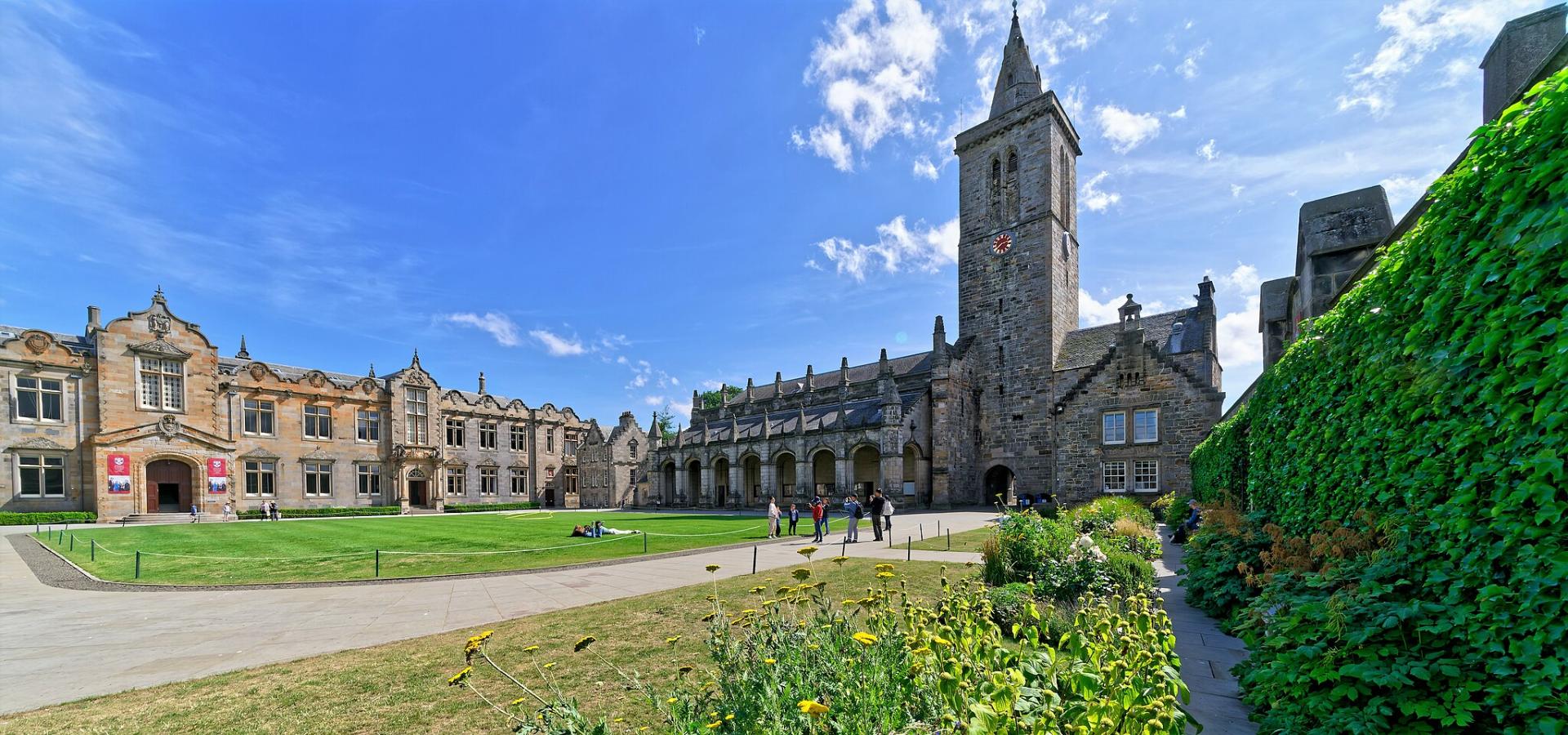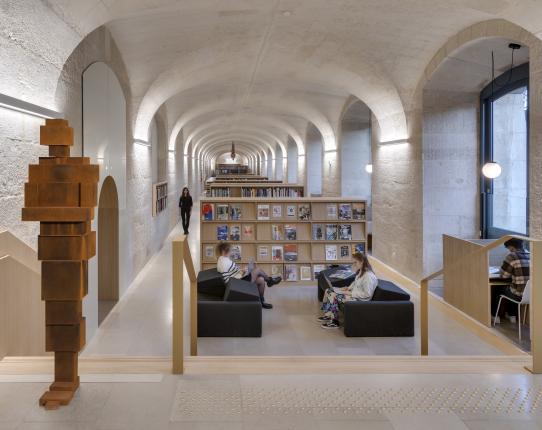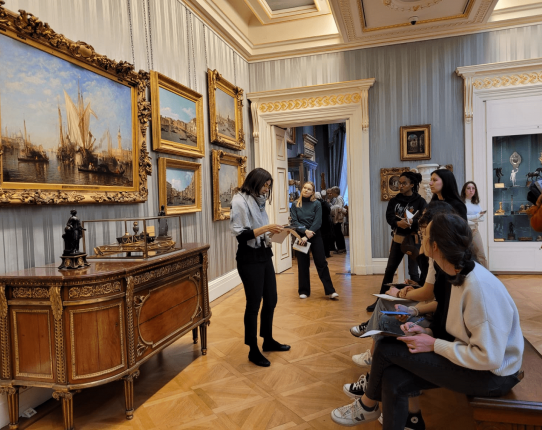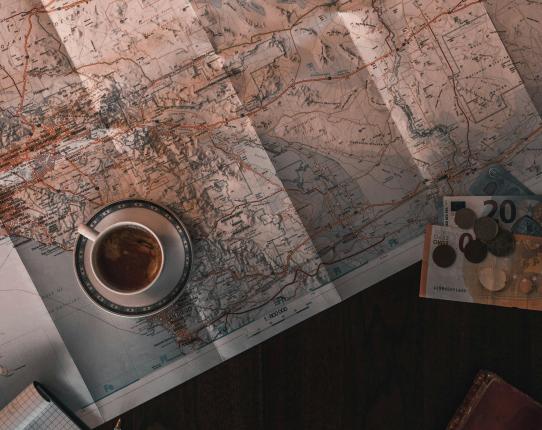
Studying abroad
Please note that gap years are not eligible for supervised exchange programmes or mobility grants.
Studying abroad
The Ecole du Louvre promotes the mobility of its students as part of their studies, whether this involves going to other European countries or outside Europe, as part of the Erasmus+ programme or other bilateral or specific programmes. Two mobility formats are offered: a study stay, which may or may not result in a diploma, and an international seminar.

Destinations
Our map shows you all the agreements that the Ecole du Louvre has signed with foreign establishments.
Studying in Europe
You can study in Europe as part of the Erasmus+ programme or as part of bilateral agreements signed between the Ecole du Louvre and other European universities. Upon your return, you will benefit from recognition of your stay abroad by obtaining ECTS credits.
The Erasmus+ program (European Region Action Scheme for the Mobility of University Students) allows students to go for between two to 12 months to another participating European country in order to study at a partner university.
Consult our map to see the list of establishments which the Ecole du Louvre has signed Erasmus+ agreements with.
Certain European universities (in the United Kingdom and Switzerland) have partnered up with the Ecole du Louvre within bilateral programmes, outside the Erasmus+ program.
Mobility must be between a period of two to 12 months in the third year of alicence degree (or first cycle), the first or second year of a master’s degree (or second cycle) or at PhD level (third cycle).
The application form (Candidater : à un séjour d'étude, à un stage, à un séminaire) is available on the digital campus. You will also have to submit several documents.
NB: at this stage, no language level certificate is necessary.
Applications are examined by the director of studies and the international relations department. The evaluation criteria include your general level (based on transcripts), your linguistic level and your project presented in a cover letter.
If you are selected for the Erasmus+ programme, you will receive the "Erasmus+ studies" grant, within the limits of available funds.
Outgoing mobility
[email protected]
Double European degrees
The Ecole du Louvre has developed several double degrees at master’s and doctorate levels with renowned European universities.
These courses allow students to complete half of their studies in both institutions and obtain a diploma from each of them.
This master’s degree, lasting four semesters, combines the complementary skills of the two institutions.
The first two semesters are carried out in Paris and correspond to the museology master’s programme (history of collections, principles of conservation-restoration, mediation, administration and management of heritage, etc.).
This training includes a master’s dissertation of approximately 50 pages on a subject in art history or museology. Students can also discover, analyse and comment on works of art and their presentation at the Louvre and in other Parisian museums on a daily basis.
The objective of the two-semester study stay in Heidelberg is to train students in the methodological foundations of scientific research and to develop their analytical skills and critical thinking. Students write a master’s dissertation at the University of Heidelberg for which they will be able to use the specialised library.
Successful students receive:
- A “Museology Diploma” (after the first year) and a “Second Cycle Diploma”, equivalent of a master’s degree, at the Ecole du Louvre;
- A “Master’s Degree in European Art History Studies” at the University of Heidelberg;
- A certificate from the Franco-German University.
The course benefits from the support of the Franco-German University.
A grant of 3,500 euros is allocated to each student in the year of their mobility.
Contact
The European Art History Institute (IEK) of the Heidelberg University and the Ecole du Louvre have established a doctoral cooperation agreement allowing third-cycle students from both establishments to benefit from co- supervision by a teacher authorised to direct research or a heritage conservator teaching at the Ecole du Louvre and by a university professor teaching at the IEK or a Privat-Dozent.
Students are registered in both establishments and pay registration fees in their home establishment.
An individual agreement is therefore signed for and by each student, then by the two establishments. The research work lasts three years.
At the end of this period, students enrolled in both establishments obtain the EDL third-cycle diploma and a doctoral certificate for the faculty of philosophy.
Contact
The École du Louvre and the University of Leiden (Netherlands) have signed a partnership agreement enabling students from both institutions to be co-supervised by a lecturer qualified to supervise research or a heritage curator teaching at the École du Louvre and by a professor from Leiden. Enrolled at both institutions, students obtain both diplomas, the postgraduate diploma from the École du Louvre and the doctorate from Leiden University.
Contact
The Ecole du Louvre and the Art History and Museology Institute of the University of Neuchâtel (UNINE) have established a doctoral cooperation agreement allowing students from both establishments registered in the third cycle to benefit from a co -supervision by a teacher authorised to direct research or a heritage conservator teaching at the Ecole du Louvre and by a professor from UNINE. Registered in both establishments, students obtain two diplomas - the third-cycle diploma from the Ecole du Louvre and a PhD from UNINE.
Contact
Study outside Europe
Students can complete part of their course in a partner university outside Europe thanks to bilateral agreements signed by the Ecole du Louvre. Upon your return, they benefit from recognition of their stay by obtaining ECTS credits.
The list of establishments the Ecole du Louvre has signed Erasmus+ agreements with is on our map.
Mobility must be between a period of two to 12 months in the third year of a licence degree (or first cycle), the first or second year of a master’s degree (or second cycle) or at PhD level (third cycle).
The application form (Candidater: à un séjour d'étude, à un stage, à un séminaire) is available on the digital campus. You will also have to submit several documents.
NB: at this stage, no language level certificate is necessary.
Applications are examined by the director of studies and the international relations department. The evaluation criteria include your general level (based on transcripts), your linguistic level and your project presented in a cover letter.
Outgoing mobility outside Europe
[email protected]
French Language Assistant Programmes Abroad
Several programmes allow you to go abroad for a year to teach French (in universities, high schools, middle schools and primary schools).
As part of the France Education International programme, 1,400 French language assistant positions are filled each year in 25 countries.
► Programme Assistants de français à l’étranger de France Éducation International
Each year, the Franco-American Fulbright Commission offers French language assistant positions in the United States to French students who have completed the first cycle or licence degree.
Internships abroad
The Ecole du Louvre encourages its students to extend their training with international work experience, within the framework of organised internships, with a view to professionalising and internationalising skills.
There are two ways to find an internship: using the network that the school makes available to you or taking individual initiative.
- By yourself: you can send a speculative application, respond to internship offers and consult dedicated online sites and platforms such as Réseau Pro, ErasmusIntern, EURES. For any questions relating to internship applications with the Ministry of Europe and Foreign Affairs (MEAE), please read the following page: https://www.diplomatie.gouv.fr/fr/emplois-stages-concours/stagiaires-etudiants/
- Via the school: The school has had partnerships and collaborations with various European and non-European organisations for years and can offer internships within numerous partner institutions, offering students guaranteed places, quality scientific supervision, and possibly material benefits.
We encourage you to complete internships lasting more than one month and which must not exceed a duration of six months.
Internships abroad can be carried out during the first cycle (in summer), in the second cycle (first year: in summer; second year: from January to October), in the third cycle or as part of a sabbatical.
Students must check the dates and content of the desired internship match with their academic curriculum. If in doubt, contact the education service.
Europe
- Staatliche Antikensammlungen und Glyptothek, Munich (Germany)
- Exchange programme for young professionals in museums Office franco-allemand pour la Jeunesse (OFAJ)
- German Centre for Art History Deutsches Forum für Kunstgeschichte (DFK Paris)
- Domaine & Musée royal de Mariemont, Morlanwelz (Belgium)
- Musée Mode et Dentelle, Bruxelles (Belgium)
- Casa Battló, Barcelone (Spain)
- National Spanish museums (Spain)
- Ministère de l'Europe et des Affaires étrangères (worldwide)
- Fondazione Musei Civici di Venezia (Italy)
- Musée Calouste Gulbenkian, Lisbonne (Portugal)
Hors Europe
- La route des Chefferies (Cameroon)
- Centre d’Études Alexandrines (Egypt)
- Directory of French sculpture, Williamstown (USA)
- American institutions via la French Heritage Society (USA)
- Davis Museum et Wellesley College (USA)
- Maharaja Sawai Man Singh II Museum, Jaipur (India)
A first series of interviews takes place during the month of November.
Each applicant goes through an interview with the studies department and the SRI, who are best placed to judge your real skills and will be able to redirect your project, if necessary, based on the offers available.
If an internship remains unfilled after this first series of interviews, you will have the opportunity to apply for it during the school year. Internships that are still vacant will be communicated via the extranet.
You must establish an internship agreement between the Ecole du Louvre, the host organisation and yourself. To request an internship agreement, you will need to complete an online form on the school's Extranet (internships and professional integration section) at least four weeks before the start of the internship.
French legislation relating to compensation for internships does not apply abroad. Compensation by the host organisation is therefore not compulsory.
Several scholarship schemes can fund your international internship (Erasmus+ internship scholarship and Erasmus+ supplement for students with disabilities, international mobility assistance, Mobilité Île-de-France scholarship, etc.). The awarding of these scholarships depends on several criteria such as your country of destination, your profile or the duration of your internship.
You can apply for international internship scholarships before your departure via an online form from the international relations department, subject to the eligibility of your application.
Useful link
Contact
International relations department
Flore wing, second floor. F08, F09, F11 offices.
Students can attend in-person (without an appointment)
- Tuesday: 2pm-5pm
- Thursday: 2pm-5pm
We also remind you that all information is available online. Do not hesitate to read our web pages and send us an email with any questions to: [email protected]/[email protected]



